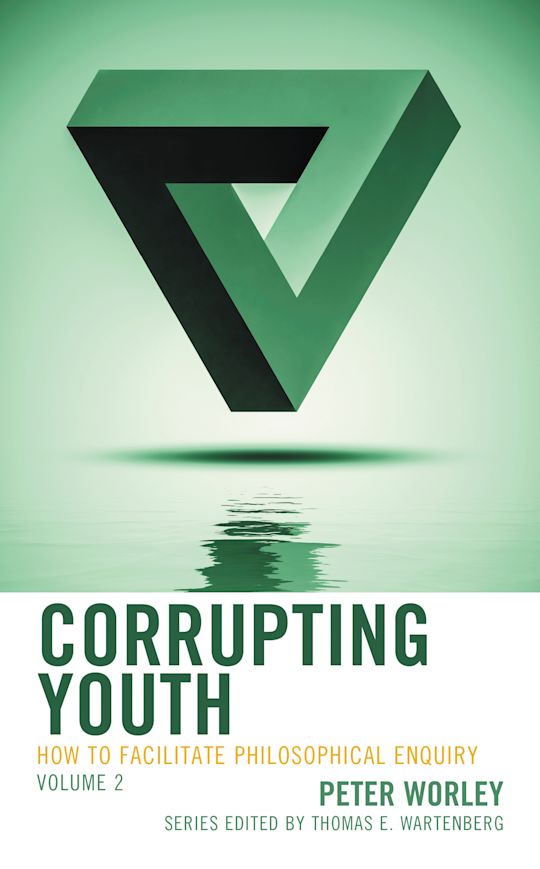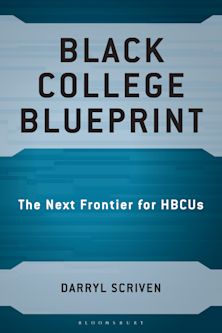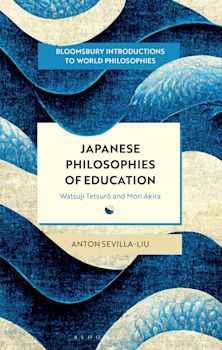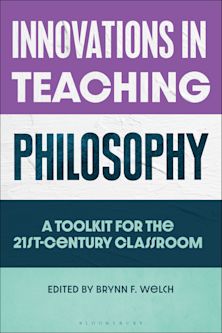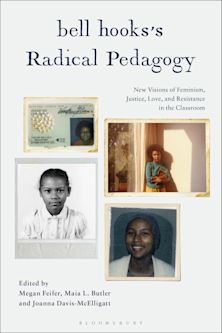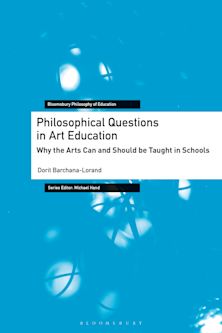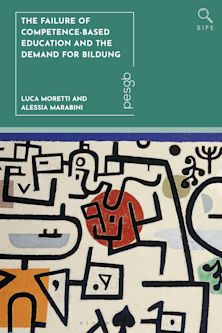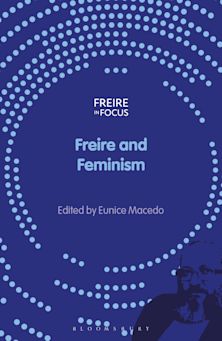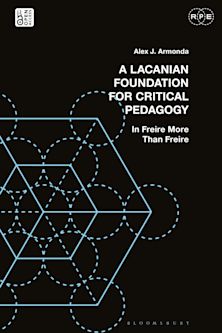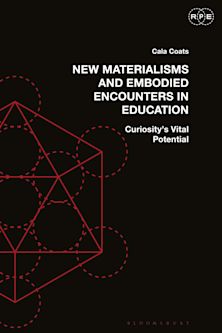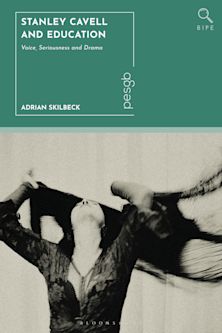- Home
- ACADEMIC
- Education
- Philosophy of Education
- Corrupting Youth
You must sign in to add this item to your wishlist. Please sign in or create an account
Description
This book takes the principles explained in Vol.1 and describes a complete classroom practice for conducting philosophical conversations with groups (especially in schools) that has been honed over nearly twenty years of classroom experience by the author and his colleagues at The Philosophy Foundation. Although the method (known here as philosophical enquiry or ‘PhiE’ for short) has been previously described in many earlier publications, this is by far the most thorough and comprehensive account of the method to date in one place. It includes, not only a thorough explanation of the central ideas of the method complete with current updates, but many extensions to the PhiE method including writing extensions, but most importantly, the extended thinking programme. This is an extension to the PhiE method that implements metacognitive and critical thinking strategies for the participants that has been shaped by two years of reflective research conducted by The Philosophy Foundation and King’s College London.
Table of Contents
Facilitating PhiE
PreparationPart One: Basic facilitation, getting PhiE going
Philosophical process and contentThe essential core of PhiEBasic mechanism of PhiEThe PhiE step-by-stepThink, Speak, ListenThink: the stimulusThink and Speak: questions in PhiE
Other key question-types in PhiESpeak: reasons
Listen: ListeningOther key dispositions in PhiE
Part Two: Expert facilitation, managing dialectic
If-ing, anchoring and opening-up
Further Facilitation Considerations
The Response Detector and The Third Way
Right-to-reply
Inclusionary moves
The Emergent Question Approach
Silent Dialogue
The Imaginary Disagreer: ‘silent dialogue’ in the classroom
The Hokey Kokey method
Arguments and hidden premises
The Mapper and PIES(S) Questions
Part Three: Advanced Facilitation, taking things further
The Sibelius Model
Writing in PhiE
Self-facilitation
Metacognition and Extended Thinking in PhiE
Thinking Tools and Thinking Wall
Metacognition in Plato and PhiE
Do you know that you know?
Meno-cognition: learning attention to ourselves
Session-plans
Session-plan 1: Epistemology through images
Magritte’s Pipe
Session-plan 2: Ethics through a question
Ethical Protesting
Session-plan 3: Aesthetics through performance
The Concert
Session-plan 4: Metaphysics through texts
Stepping into rivers with Heraclitus, Cratylus and Plato
Appendix A-D: Tables of moves
Appendix E: Pieces of music for The Concert session plan
Bibliography
About the Author
Product details
| Published | 15 Feb 2021 |
|---|---|
| Format | Ebook (PDF) |
| Edition | 1st |
| Extent | 180 |
| ISBN | 9798216253228 |
| Imprint | Rowman & Littlefield Publishers |
| Illustrations | 11 b/w illustrations; 6 tables; 16 textboxes |
| Series | Big Ideas for Young Thinkers |
| Publisher | Bloomsbury Publishing |
About the contributors
Reviews
-
Peter Worley’s works form an introduction of sorts to philosophical dialogue on both the theoretical and practical levels. While lucid and coherent, they are above all illuminating and enlightening, educating the reader in the questions that engage the practitioners of PwC/P4C and the dialogue created by questions and ponderings that opens up a whole world of imagination—answers in turn raising new queries. As per his wont, Worley’s writing is imbued with an inner fire that easily translates into action—an enthusiasm that verges on educational, pedagogical, and philosophical exaltation. On coming to the end of the reading experience, we are left with the conviction that there must be more—a higher level, material we have yet to be exposed to—and it is worth our while to wait and hope to reach even greater heights of our common humanity.
Arie Kizel, Faculty of Education, University of Haifa (Israel); President, ICPIC (International Council of Philosophical Inquiry with Children)
-
Corrupting Youth is yet another great contribution to the literature on philosophy in schools from Peter Worley. Worley traces the ancient sources of his dialectical approach to philosophical enquiry, brings out its continuing value, and explains the principles and practices involved. Here is an expert facilitator who shows how you can become one too.
Philip Cam, president, The Federation of Australasian Philosophy for Children's Associations; Honorary Associate Professor, University of New South Wales
-
All facilitators of philosophical enquiry, and indeed all educators, should pounce on this book. In this volume Worley provides a wealth of eminently practical and imaginative resources, honed through his many years of experience, which will enrich and enliven the classroom and beyond for pupils, participants and facilitators alike. The aim of both well-integrated volumes is to foster the open, questioning mindsets - constructively critical, collaborative and imaginative - which are so urgently needed to tackle the complex challenges of the 21st century.'
Angie Hobbs, Professor of the Public Understanding of Philosophy, University Of Sheffield
-
I believe that Worley’s book will serve as a reference point for future debates. I highly recommend a close study of this book to anyone interested in learning the subtle dynamics of dialogic inquiry and facilitation. Worley’s book, especially Volume II, is one of the most sophisticated and insightful handbooks available for facilitating philosophical inquiry in schools.
Teaching Philosophy









